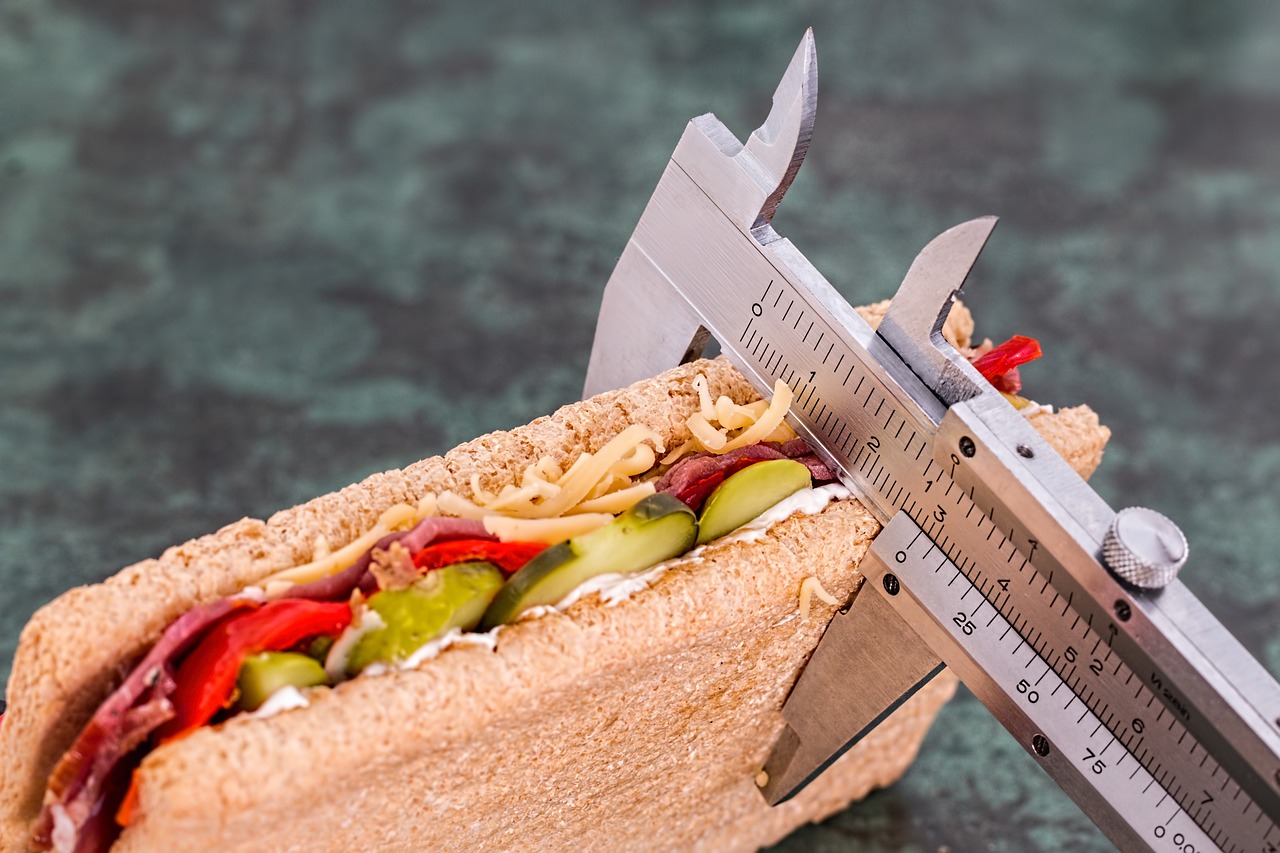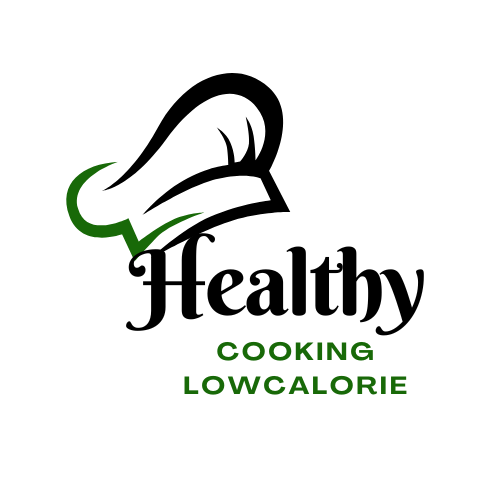Most people associate low-calorie diets with physical benefits like weight loss, improved heart health, and better metabolism. However, few consider the mental health impact of long-term calorie restriction.
✔ Why does dieting affect mental health? A low-calorie diet can disrupt brain function, affecting mood, motivation, stress levels, and emotional eating habits.
✔ What happens when calories are too low? The brain relies on steady energy from food, and severe restriction can lead to irritability, anxiety, depression, and food obsession.
✔ How can you balance mental health while dieting? With the right coping strategies, you can avoid diet burnout and mood swings while still achieving weight loss goals.
📌 What You’ll Learn in This Guide:
✅ The science behind a low-calorie diet’s effect on mental health
✅ 7 common mental health struggles when cutting calories
✅ Practical strategies to maintain emotional well-being while dieting
✅ Nutrient-rich stress-relief recipes
👉 Need a full guide? Download our FREE Mind-Body Wellness Plan for expert-backed dieting and mental health strategies!
The Science Behind a Low-Calorie Diet and Mental Health

🔹 How Cutting Calories Affects Mood & Cognitive Function
📌 Calorie restriction impacts the brain’s neurotransmitters and hormone levels, leading to changes in mood, energy, and focus.
✔ Lower serotonin levels – Can cause mood swings, irritability, and cravings.
✔ Increased cortisol (stress hormone) – Leads to higher anxiety, stress eating, and sleep issues.
✔ Reduced dopamine production – Affects motivation, pleasure, and consistency with dieting.
✔ Brain fog & mental fatigue – Less fuel for the brain can cause trouble concentrating and slower thinking.
🔬 Science Insight: A study published in Psychosomatic Medicine found that caloric restriction increases stress hormones, making people more likely to crave high-calorie comfort foods.
📌 Quick Tip: Managing stress, sleep, and nutrient intake can prevent these negative effects.
7 Mental Health Challenges of a Low-Calorie Diet (And How to Overcome Them)
1️⃣ Mood Swings & Irritability
✅ Why It Happens: Cutting calories can lower serotonin (the “happiness” hormone), leading to irritability, mood swings, and frustration.
✅ How to Fix It:
✔ Include healthy fats like salmon, walnuts, and flaxseeds to support brain function.
✔ Use refeed days (planned higher-calorie days) to reset serotonin and boost mood.
✔ Practice deep breathing before meals to reduce anxiety about food.
🔬 Science Insight: A study in Nutritional Neuroscience found that low omega-3 levels in calorie-restricted individuals are linked to depression and increased stress.
2️⃣ Increased Anxiety & Diet-Related Stress
✅ Why It Happens:
✔ Caloric restriction increases cortisol levels, leading to higher stress and nervousness.
✔ Constant food tracking & worrying about calories can cause obsessive thinking about food.
✅ How to Fix It:
✔ Prioritize protein & complex carbs (chicken, quinoa, lentils) to stabilize blood sugar.
✔ Use guided meditation or 5-minute breathing exercises to manage stress.
✔ Take breaks from calorie tracking to prevent diet obsession.
🔬 Science Insight: A study from The American Journal of Clinical Nutrition found that chronic dieters have higher cortisol levels than non-dieters, which increases stress-related cravings.
3️⃣ Emotional Eating & Food Cravings
✅ Why It Happens:
✔ Low energy levels trigger cravings for high-calorie, sugary foods.
✔ Restricting certain foods makes them more tempting, leading to binge eating episodes.
✅ How to Fix It:
✔ Use the HALT Method (Ask: Am I Hungry, Angry, Lonely, or Tired?) before eating.
✔ Eat regularly to prevent extreme hunger. Skipping meals increases the urge to overeat later.
✔ Focus on fiber-rich foods (vegetables, beans, whole grains) to promote fullness.
🔬 Science Insight: A study in Obesity Reviews found that people who practiced mindful eating techniques reduced binge-eating episodes by 40%.
4️⃣ Low Motivation & Brain Fog
✅ Why It Happens:
✔ Not enough carbs or calories can lead to slower thinking, trouble concentrating, and fatigue.
✅ How to Fix It:
✔ Increase healthy carbs on workout days (brown rice, oats, sweet potatoes).
✔ Drink more water—even slight dehydration can cause brain fog.
✔ Use a non-food reward system (new workout gear, a day off social media) to stay motivated.
🔬 Science Insight: Research in The Journal of Clinical Nutrition found that low-carb dieters experience cognitive decline after 2 weeks but improve after reintroducing whole grains.
5️⃣ Sleep Disturbances & Fatigue
✅ Why It Happens:
✔ Hunger disrupts melatonin production, leading to trouble falling or staying asleep.
✔ Low blood sugar at night can wake you up feeling anxious or restless.
✅ How to Fix It:
✔ Eat a protein-rich bedtime snack (Greek yogurt, almonds) to stabilize blood sugar.
✔ Avoid caffeine after 2 PM—it can increase diet-related sleep disruptions.
✔ Try magnesium-rich foods (spinach, bananas, pumpkin seeds) to improve sleep.
🔬 Science Insight: A study in The Journal of Sleep Research found that diets lacking magnesium and protein can lead to insomnia and restless sleep cycles.
6️⃣ Social Pressures & Dieting Stress in Social Settings
✅ Why It Happens:
✔ Friends & family may pressure you to eat more or indulge.
✔ Fear of “ruining your progress“ can cause diet stress when eating out.
✅ How to Fix It:
✔ Pre-plan your meals before social events.
✔ Focus on conversation, not just food.
✔ Give yourself permission to enjoy treats in moderation—one meal won’t ruin your progress.
7️⃣ Long-Term Mental Burnout From Dieting
✅ Why It Happens:
✔ Strict calorie restriction can lead to burnout, mental fatigue, and food obsession.
✅ How to Fix It:
✔ Take a strategic diet break. Eating at maintenance calories for a week can reset metabolism and mental focus.
✔ Shift your mindset. Focus on health benefits, not just weight loss.
✔ Prioritize sleep, relaxation, and enjoyable activities.
Practical strategies to maintain emotional well-being while dieting
🔹 How to Rewire Emotional Eating Habits
✅ The Problem: Many people eat not because they’re hungry, but because they’re stressed, anxious, or seeking comfort. This emotional connection to food can make dieting mentally exhausting and increase cravings for high-calorie foods.
✅ The Fix: Learn to identify emotional triggers and replace stress eating with alternative coping strategies.
📌 Mindful Eating Exercise – The “Pause & Assess” Method:
✔ Before eating, ask yourself: Am I truly hungry, or is this emotional?
✔ If emotional, do a non-food activity for 10 minutes (walk, journal, stretch).
✔ If still hungry, eat a balanced meal mindfully, without distractions.
🔬 Science Insight: A study from The Journal of Eating Behaviors found that people who practiced mindful eating strategies reduced binge-eating episodes by 40%.
📌 Alternative Stress Management Activities Instead of Eating:
✔ Deep breathing exercises
✔ Going for a walk
✔ Listening to relaxing music
✔ Calling a friend
Best Nutrients for Brain Health While Dieting
🔹 Foods That Support Mental Clarity & Mood Stability
📌 Why it Matters: A low-calorie diet can lead to nutrient deficiencies that impact brain health and emotional stability. Choosing the right foods can help balance mood and energy levels.
✔ Omega-3s: Salmon, walnuts, chia seeds – reduce anxiety and inflammation.
✔ Magnesium-Rich Foods: Dark leafy greens, pumpkin seeds, bananas – help lower stress hormones.
✔ B Vitamins: Eggs, lentils, whole grains – support brain function and energy production.
🔬 Science Insight: Research in Nutritional Psychiatry found that people with higher omega-3 intake had lower rates of depression and better cognitive function while dieting.
📌 Diet Tip: Instead of focusing on calories alone, prioritize nutrient density to support both mental and physical health.
Stress-Relief Recipes for a Balanced Mind & Body (with Step-by-Step Instructions)
1️⃣ Anti-Stress Salmon & Avocado Bowl
Ingredients:
- 4 oz grilled salmon
- ½ avocado, sliced
- 1 cup spinach
- ½ cup quinoa
- 1 tbsp olive oil
- Juice of ½ lemon
- ¼ tsp sea salt
- ¼ tsp black pepper
Instructions:
1️⃣ Cook the quinoa: Rinse ½ cup quinoa under cold water. Add to a pot with 1 cup water and bring to a boil. Reduce heat, cover, and simmer for 15 minutes until water is absorbed. Fluff with a fork.
2️⃣ Prepare the salmon: Preheat a pan over medium heat. Drizzle salmon with ½ tbsp olive oil, then season with salt and black pepper.
3️⃣ Grill the salmon: Cook for 3-4 minutes per side until flaky. Remove from heat and let it rest.
4️⃣ Assemble the bowl: Place quinoa, spinach, and sliced avocado in a bowl.
5️⃣ Add the salmon: Place the grilled salmon on top, drizzle with lemon juice and remaining olive oil.
📌 Why It Works:
✔ Salmon & avocado provide omega-3s to support brain health.
✔ Quinoa is a complex carb that provides steady energy.
✔ Olive oil & lemon add flavor while reducing inflammation.
2️⃣ Magnesium-Rich Green Smoothie for Relaxation
Ingredients:
- 1 cup unsweetened almond milk
- 1 handful spinach
- ½ banana
- 1 tbsp flaxseeds
- 1 tsp honey
- ½ tsp cinnamon
- Ice cubes
Instructions:
1️⃣ Blend the ingredients: Add almond milk, spinach, banana, flaxseeds, honey, and cinnamon to a blender.
2️⃣ Add ice cubes: Blend until smooth, about 30 seconds.
3️⃣ Taste & adjust: If needed, add more cinnamon or honey for extra flavor.
4️⃣ Serve immediately: Pour into a glass and enjoy cold.
📌 Why It Works:
✔ Spinach & flaxseeds provide magnesium, which lowers stress hormones.
✔ Banana contains B vitamins and serotonin precursors for mood balance.
✔ Almond milk is a calcium-rich alternative that supports nerve relaxation.
3️⃣ Protein-Packed Turkey & Quinoa Stuffed Peppers
Ingredients:
- 2 large bell peppers (any color)
- 1 cup cooked quinoa
- 4 oz lean ground turkey
- ½ cup black beans, drained
- ½ cup diced tomatoes
- ½ tsp cumin
- ½ tsp paprika
- ½ tsp sea salt
- ½ tsp black pepper
- 1 tbsp olive oil
Instructions:
1️⃣ Preheat the oven: Set to 375°F (190°C).
2️⃣ Prepare the peppers: Cut the tops off bell peppers, remove seeds, and lightly drizzle with olive oil.
3️⃣ Cook the turkey: In a pan over medium heat, cook ground turkey until browned (about 5 minutes). Drain excess fat.
4️⃣ Add beans & tomatoes: Stir in black beans, diced tomatoes, quinoa, cumin, paprika, salt, and pepper. Cook for 2-3 minutes until combined.
5️⃣ Stuff the peppers: Spoon the filling into each bell pepper.
6️⃣ Bake: Place in a baking dish and cover with foil. Bake for 20-25 minutes until peppers are tender.
7️⃣ Serve warm: Enjoy with a side salad or steamed veggies.
📌 Why It Works:
✔ Lean protein from turkey & beans supports stable blood sugar.
✔ Quinoa provides slow-releasing carbs for steady energy.
✔ Bell peppers are rich in vitamin C, which helps lower cortisol (stress hormone).
Final Thoughts: How to Maintain Mental Wellness While Dieting
✔ Your mental health is just as important as your physical progress.
✔ Using mindful eating, proper nutrition, and balanced meal planning prevents diet burnout.
✔ A sustainable low-calorie diet should support both your body and your mind.
📌 Want a structured plan? Download our FREE Mind-Body Wellness Guide for stress-relief techniques, meal plans, and expert-backed strategies!
🎯 Get Your Free Mind-Body Wellness Guide!
📩 Download the FREE Guide, featuring:
✅ 7+ stress-relief strategies for dieters
✅ A complete meal plan for mental health & weight loss
✅ 5+ brain-boosting recipes for a balanced mind & body
📌 Click Here to Get Your Free Guide!
💬 Which coping strategy are you most excited to try? Drop your thoughts in the comments below!
🚀 Achieve weight loss success while supporting your mental health!
FAQs: Low-Calorie Diet and Mental Health
✔ Yes, if nutrients are lacking. Balancing healthy fats, proteins, and vitamins can prevent mood swings.
✔ Use alternative stress-relief activities like journaling, deep breathing, and mindful movement.
✔ Focus on non-scale victories like improved energy, better sleep, and increased strength rather than just weight loss.
✔ Eat more protein and fiber, drink plenty of water, and use the HALT method to determine if the craving is emotional or physical.
✔ Magnesium, omega-3s, and B vitamins can help regulate mood, reduce stress, and improve brain function during calorie restriction.
